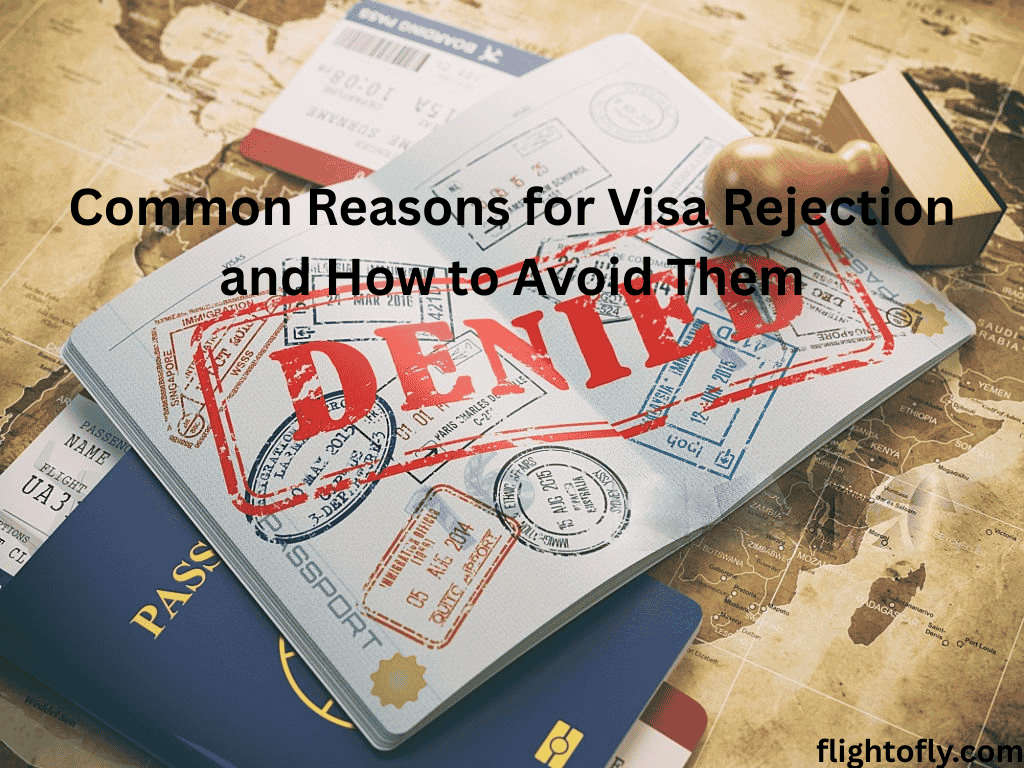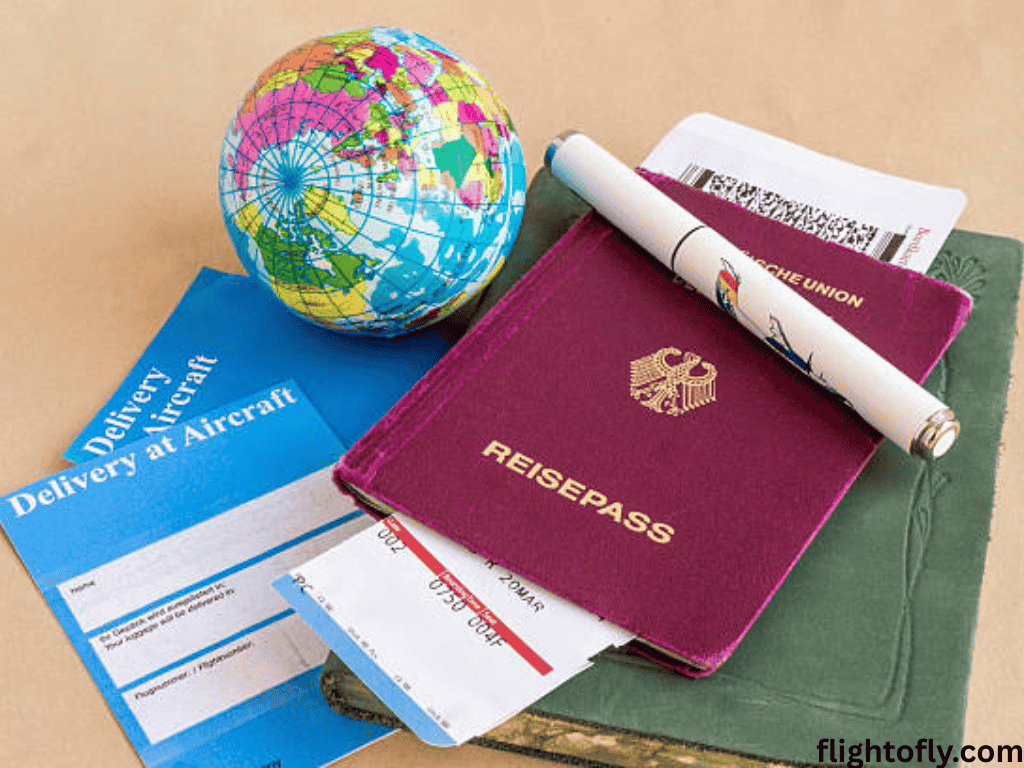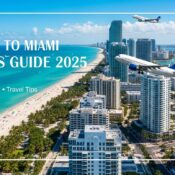
Common Reasons for Visa Rejection and How to Avoid Them
Applying for a visa can be exciting and stressful at the same time. Whether you want to travel for study, work, tourism, or to visit family, getting a visa is often the first big step. But what happens if your visa application gets rejected? It can be frustrating and confusing. We will explain the common reasons for visa rejection and share simple tips on how to avoid them. By the end, you will know how to prepare your application to increase your chances of success.
What is a Visa Rejection?
A visa rejection means the embassy or consulate did not approve your request to enter a country. When this happens, you receive a letter or notice explaining the reasons. Sometimes the reason is clear, but other times it might be vague.
Visa rejections are common, but most can be avoided with the right preparation and careful attention to detail. Let’s explore the main reasons why visas get denied.
1. Incomplete or Incorrect Application
One of the top reasons for visa rejection is submitting an incomplete or incorrect application. If you forget to fill out some parts, provide wrong information, or miss required documents, the consulate may reject your application right away.
How to avoid this:
- Double-check every section of your visa form before submitting.
- Make sure all your details (name, date of birth, passport number) match your passport exactly.
- Submit all required documents as listed on the official visa website.
- Avoid spelling mistakes and make sure your photos meet the specifications.
2. Lack of Proof of Financial Stability
Visa officers want to see that you can support yourself financially during your stay. If you fail to show bank statements, salary slips, or sponsorship letters proving you have enough money, your application may be denied.
How to avoid this:
- Provide recent bank statements (usually for the last 3-6 months).
- Show proof of income, such as payslips or employment letters.
- Include a sponsorship letter if someone else is funding your trip.
- Avoid large, sudden deposits in your bank account before the application — it may raise suspicion.
3. Weak Ties to Home Country
Immigration officers want to be sure you will return to your home country after your visit. If you don’t provide enough proof of ties like a job, family, property, or studies back home, they may think you want to overstay or immigrate illegally.
How to avoid this:
- Submit documents that prove your commitments at home, such as employment letters, school enrollment, or property ownership.
- Include family documents if you have dependents.
- Write a clear cover letter explaining your travel purpose and plans to return.
4. Previous Visa Rejections or Immigration Violations
If you have been rejected before or have a history of overstaying a visa or violating immigration rules, this can hurt your chances. Visa officers carefully check your travel history.
How to avoid this:
- Always be honest about your travel history in your application.
- If you were rejected before, try to understand the reasons and fix them before reapplying.
- Show that your situation has changed since the last application.
5. Insufficient Travel Purpose Explanation
If you don’t clearly explain why you want to visit the country, the visa officer might doubt your intentions. Vague or conflicting answers can cause suspicion.
How to avoid this:
- Write a detailed itinerary of your travel plans, including dates, places, and contacts.
- Provide invitation letters if visiting family or attending events.
- Be clear about your purpose — whether it’s tourism, business, study, or medical treatment.
Check: Can I Book a Flight with an Expired Passport?
6. Invalid or Expired Passport
Your passport must be valid for at least six months beyond your planned stay. If your passport is expired, damaged or close to expiry, your visa may be rejected.
How to avoid this:
- Check your passport expiry date before applying.
- Renew your passport if it’s about to expire.
- Ensure your passport has enough blank pages for visa stamps.

7. Lack of Travel Insurance or Health Documents
Some countries require proof of travel insurance or health clearances (like vaccinations) to approve your visa.
How to avoid this:
- Buy travel insurance that covers your entire trip.
- Provide vaccination certificates if needed (e.g., Yellow Fever, COVID-19).
- Check the specific health requirements for the country you want to visit.
8. Suspicious or Fraudulent Documents
Submitting fake or altered documents is a serious reason for visa rejection and can lead to a bans.
How to avoid this:
- Always submit genuine documents.
- Do not try to fake bank statements, letters, or other papers.
- If you are unsure about any document, seek advice from a professional or official sources.
9. Failure to Attend Visa Interview or Poor Interview Performance
Some visa applications require an interview. Missing the appointment or giving unclear or inconsistent answers may result in rejection.
How to avoid this:
- Attend your visa interview on time and prepared.
- Dress neatly and be polite.
- Answer questions honestly and confidently.
- Prepare common questions about your travel plans and background.
10. Overstaying or Violating Visa Conditions in the Past
If you stayed longer than allowed on a previous trip or broke visa rules, the embassy may distrust your new application.
How to avoid this:
- Follow visa rules strictly on every trip.
- If you overstayed previously, explain your situation honestly and show that you have learned from it.
- Provide proof that you have resolved any legal issues related to your past stay.
Bonus Tips to Improve Your Visa Application Success
Besides avoiding the common rejection reasons, here are some extra tips that can help:
- Plan: Start your visa application well before your travel date.
- Follow guidelines: Always read the official visa instructions carefully.
- Be honest: Never lie or hide information.
- Seek help: If you feel confused, use a visa consultant or authorized agencies.
- Keep copies: Always keep copies of your submitted application and documents.
- Be organized: Submit everything in the order requested.
- Check fees: Pay the visa fee exactly as instructed.
What to Do After a Visa Rejection?
If your visa gets rejected, don’t panic. You can:
- Read the rejection letter carefully to understand the reason.
- Ask the embassy if they allow reapplication and what you need to change.
- Fix the problems in your application before trying again.
- Consider professional advice if you are not sure why you were rejected.
Conclusion
Visa rejections happen often but can be avoided with careful preparation and honesty. The key reasons include incomplete forms, lack of financial proof, weak ties to your home country, unclear travel purpose, and invalid documents.
By understanding these common issues and following the tips in this article, you can improve your chances of getting your visa approved. Take your time, stay organized, and be truthful. This will help your application stand out for all the right reasons.
Good luck with your visa application!
FAQS
1. Why was my visa application rejected?
Visa applications are often rejected due to incomplete forms, missing documents, lack of financial proof, unclear travel purpose, or weak ties to the home country. Sometimes, past immigration violations or expired passports also cause rejection.
2. Can I reapply after my visa is rejected?
Yes, you can usually reapply. Before reapplying, carefully review the rejection reasons, fix any issues in your application, and provide stronger evidence. Being honest and thorough increases your chances of approval next time.
3. How can I prove strong ties to my home country?
You can show strong ties by submitting documents like employment letters, property ownership papers, family details, school enrollment, or any commitments that prove you will return after your trip.
4. What documents are most important for a visa application?
Key documents include a valid passport, a completed visa application form, proof of financial stability (bank statements, payslips), a travel itinerary, invitation or sponsorship letters (if applicable), and travel insurance or health certificates if required.
All Categories
Recent Posts
Atlanta to New York Cheap Flights, Airlines, Prices & Travel Tips 2025
How Long is the Flight from the UK to Turkey?
Boston to Miami Flights Guide 2025: Cheapest Airlines, Travel Tips & Booking Hacks
Tags





